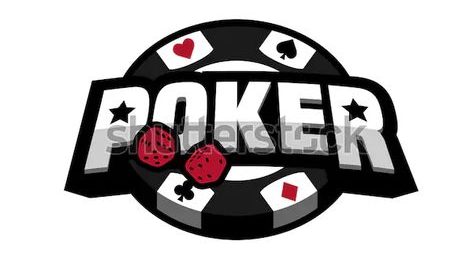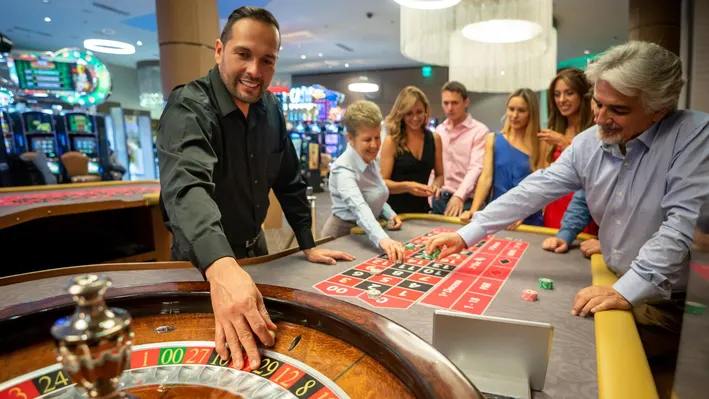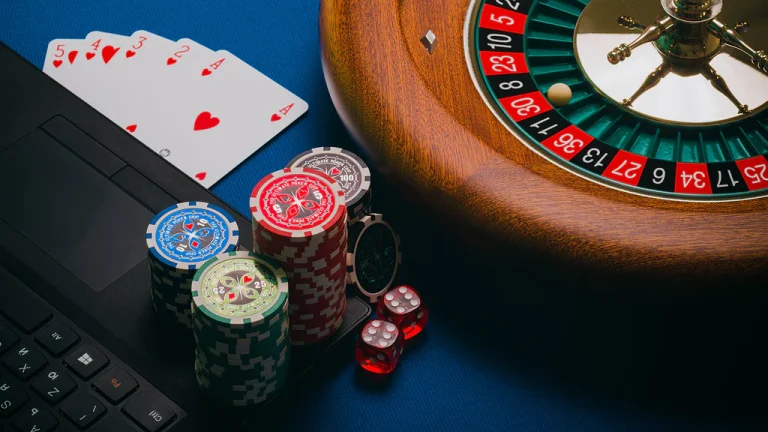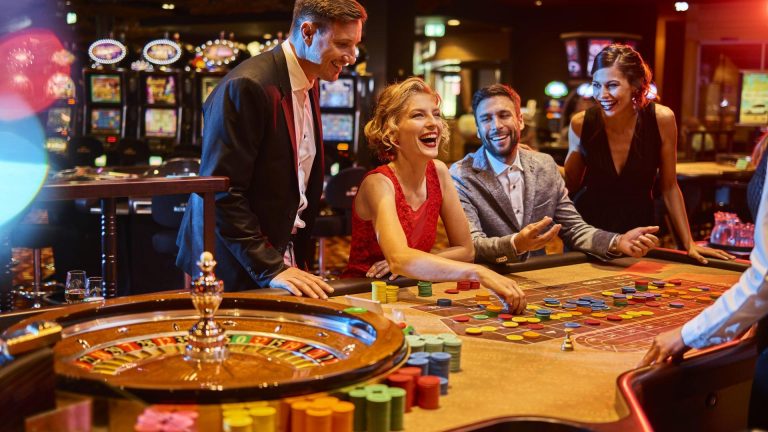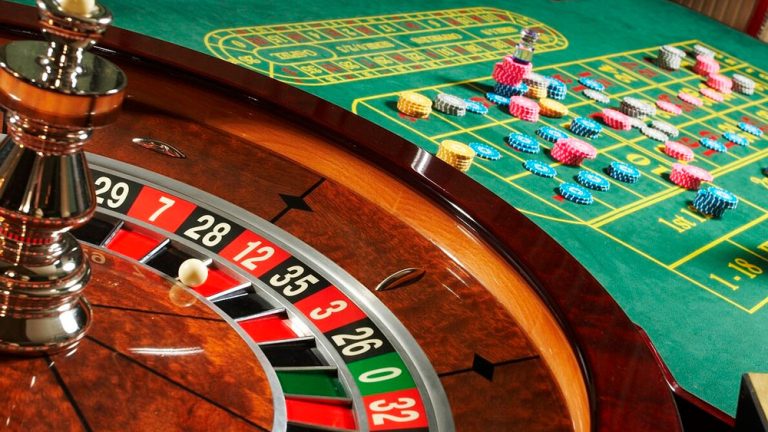In the bustling digital environment of modern online gambling, there’s one moment more potent than any jackpot or bonus round. It’s not the win, nor the loss – it’s the quiet, electric split-second right before the player clicks the “Bet” button. This tiny window of time, so brief it’s often imperceptible, is loaded with psychological complexity. On platforms like Neon54 casino, where sleek interfaces and responsive game design pull you into an immersive experience, the space before the click is where your mind does its most dramatic work.
What exactly happens in that mental pause? What cognitive and emotional mechanisms spring into action in the milliseconds before the wager is made? This article explores the unseen moment before the click – unpacking the chemistry, psychology, anticipation, risk assessment, and emotion behind every bet.
The Invisible Pause: Defining the Moment Before the Bet
A Mental Crossroad
The moment before the bet is not as simple as lifting a finger. It’s a culmination of memory, emotion, logic, fantasy, and often, stress. It is a mental crossroad where the brain quickly analyzes past outcomes, predicts future possibilities, and navigates an emotional rollercoaster of doubt, excitement, hope, and fear.
Microseconds of Meaning
In this hyper-condensed timeframe – mere microseconds for seasoned players – the brain processes more than just whether the bet is “smart” or not. It weighs subconscious motivations, recent results, emotional states, and even self-identity. That moment is not just about clicking “Spin” at casino; it’s about choosing how you feel, who you are, and what future you’re gambling for.
The Neuroscience of Anticipation
Dopamine’s Early Arrival
Most people associate dopamine – the “feel-good” neurotransmitter – with reward. But in gambling, dopamine is released not after the win, but in anticipation of it. Neuroscience studies show that dopamine levels spike in the lead-up to taking action, not in reaction to the outcome.
This means that just before you place a bet at casino, your brain is already flooding with dopamine, encouraging action. The mere thought of a possible win creates a chemical reward loop that feels pleasurable, regardless of the final result.
The Brain’s Risk Calculator
In that pause before the bet, the prefrontal cortex (responsible for reasoning and decision-making) and the amygdala (responsible for emotion) are locked in an invisible negotiation. The rational mind asks, “Is this a good decision?” while the emotional brain whispers, “What if this is the one?” The result? A decision that often feels both spontaneous and carefully considered – because in a way, it is.
Emotion, Memory, and Betting
Emotional Echoes of Past Bets
Whether consciously or not, players bring emotional baggage from past gambling experiences into every new click. That high from a previous win or the sting from a painful loss colors the present moment. The brain is designed to learn from emotional experiences, so it silently reminds you of how it felt the last time you clicked – urging you to chase the same thrill or avoid the same pain.
Near Misses and Memory Distortion
Slot machine studies show that near-misses – events where the outcome was close to a win – actually enhance motivation to continue playing. They get logged in the brain not as losses, but as “almost victories,” warping memory and encouraging another click.
When players at casino experience a near-miss, it doesn’t register as failure. It subtly inflates the perceived probability of a future win, fueling the next click with renewed hope.
The Psychology of Control and Illusion
The Illusion of Influence
Right before placing a bet, many players feel a surge of perceived control – even if the game is based entirely on chance. Selecting the exact moment to spin, choosing paylines, or engaging with autoplay toggles can create an illusion of skill or influence.
Even though the outcome is determined by a random number generator, the feeling of agency adds meaning to the act. The mind says, “Maybe this time, because I chose it differently,” even though the odds remain the same.
Superstition and Pattern-Seeking
The human brain is a pattern-recognition machine. In the moment before the click, it’s scanning for signs – numbers, colors, streaks – that feel predictive. This pattern-seeking behavior, often guided by superstition, gives the player a sense of order in a random environment.
From wearing a lucky bracelet to believing that a particular slot at casino “pays out better at night,” these rituals are cognitive tools to reduce anxiety and increase perceived control.
Social Context in a Private Moment
Virtual Audiences and Imaginary Applause
Even when gambling alone, players often experience a sense of being watched – or more accurately, imagined. In the moment before the click, some envision telling their friends about a big win or picture what others would think of their boldness.
This internalized social presence can push players toward riskier bets, especially if they imagine receiving admiration or recognition for a big payout. The bet becomes a performance, and the pause before the click, a dramatic breath before the curtain rises.
Chat Features and Community Energy
Platforms may offer chat-enabled live games or tournaments. Even if players are physically alone, the shared atmosphere adds emotional weight to each decision. That moment before betting might include checking the chat, seeing how others are betting, or reacting to someone else’s win – adding a layer of communal influence to personal choices.
Impulsivity vs. Reflection
Fast Clicks and the Need for Speed
Some players never pause. The moment before the click is fleeting – impulsive, almost automatic. For these individuals, gambling is about momentum. Slowing down feels like doubt, so they trust instinct over logic. This behavior is tied to high impulsivity and is more likely in individuals seeking stimulation or emotional escape.
Reflective Gambling: A Slower Pulse
Other players use the moment before the click to assess, breathe, and plan. They consider past patterns, current bankroll, and emotional state. This form of reflective gambling is associated with better long-term outcomes, as the player maintains awareness of the game’s structure and their motivations.
Casino supports both styles of play – but reflective gamblers tend to engage longer without experiencing emotional fatigue.
The Emotional Spectrum Before the Bet
Hope and Fantasy
Hope is perhaps the most powerful emotion just before a bet. The player visualizes the win, imagines the celebration, sees the number or symbol aligning. This fantasy is short-lived but incredibly vivid, especially when one is emotionally or financially invested.
Anxiety and Guilt
For some, the moment before clicking comes with tension. A sense of recklessness, guilt over previous losses, or fear of continuing a losing streak may create internal conflict. This emotional friction can either prevent the click – or make it even more tempting as a way to “break the curse.”
Curiosity and Adventure
A frequently under-recognized motivator is curiosity. What will happen? What if? This sense of exploration, akin to opening a mystery box or scratching a lottery ticket, is compelling. It doesn’t always stem from greed or need – it stems from a desire to see what’s next.
The Role of Game Design in Shaping the Moment
Sound, Color, and Animation
Every detail of a casino game is designed to enhance that pivotal moment before the click. The glowing button, suspenseful music, pulsing animations – all are tailored to heighten engagement and anticipation. Casino’s design choices are particularly effective in creating immersive pre-click tension, subtly guiding the player toward action.
Countdown Timers and Urgency
In live games or time-limited promotions, countdowns create urgency. This pressure shortens the moment before the click, encouraging faster, less-considered decisions. Urgency works by triggering the fear of missing out (FOMO), pushing players toward impulsive choices.
How to Reclaim the Moment Before the Click
Introducing Mindful Gambling
The best way to manage the intensity of the pre-bet moment is through mindfulness. Pausing intentionally before the click – taking a breath, checking your emotional state, asking yourself why you’re betting – restores agency. Mindful gambling doesn’t remove fun; it enhances it by ensuring that the player remains in control.
Set Internal Rules
Internal rules like “I only bet after a 5-second pause” or “I check my mood before every bet” are simple but powerful ways to build discipline. These micro-boundaries create space between impulse and action, reducing the chance of emotionally driven betting.
Final Thoughts: What the Click Represents
That moment before the click is not just a trivial transition – it’s a powerful psychological event. It encapsulates risk, identity, emotion, memory, and fantasy all in one heartbeat. Whether you’re a seasoned strategist or a curious newcomer at casino, learning to understand what happens before the click can lead to deeper insight – not just into the game, but into yourself.
